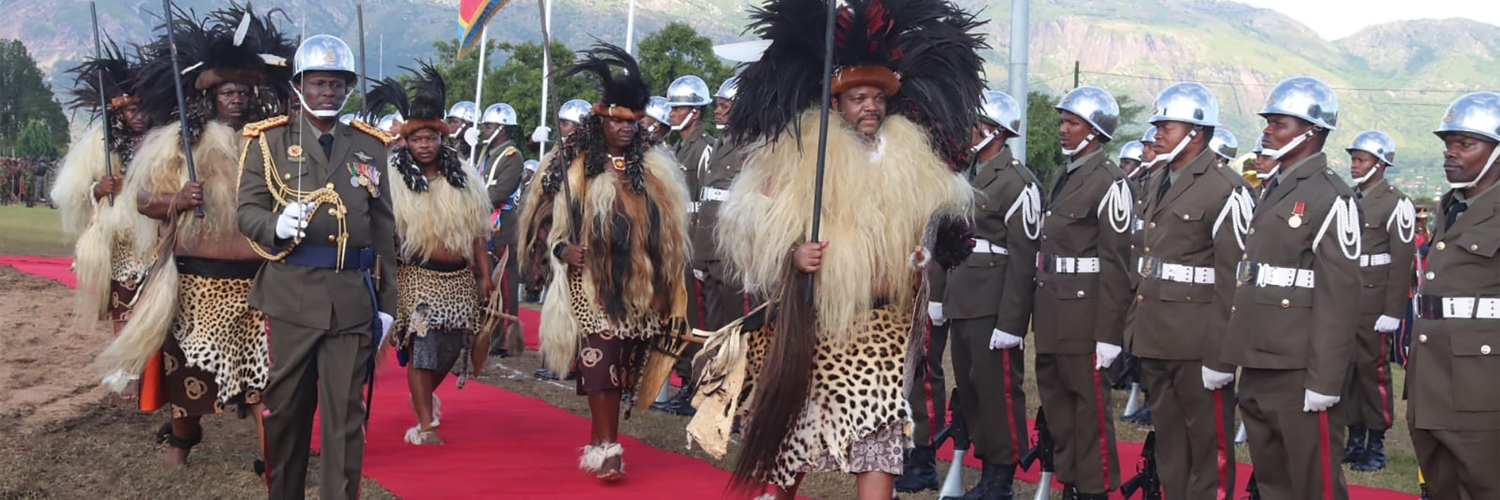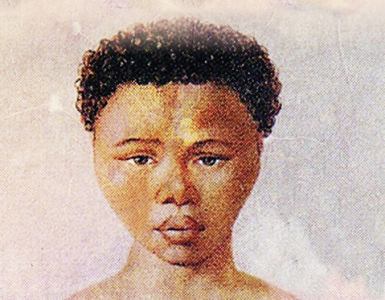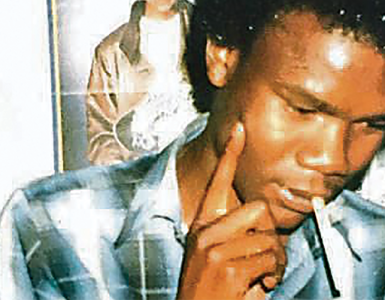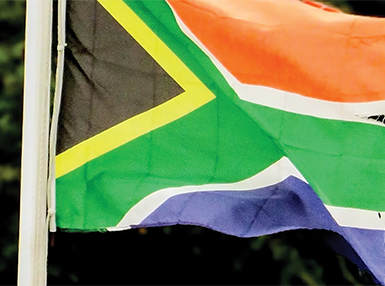REPRESSION: Latest Human Rights Watch report warns of activists and critics being targeted, including increasing attacks on refugees in the region…
By Own Correspondent
Johannesburg – Southern African governments targeted and clamped down on their political opposition, activists, and journalists in 2023, Human Rights Watch said in its World Report 2024.
Southern Africa had historically faced problems such as political instability, and issues related to freedoms of expression, association, and equal participation. In 2023, these concerns had been closely related to free and fair elections, abusive responses to political unrest and clamping down on civic spaces. These actions had contributed to a steady decline in rights protection and guarantees in the region.
“The authorities should immediately address the escalating cases of abduction, arbitrary detentions, torture and killings of opposition political activists,” said Allan Ngari, Africa advocacy director at Human Rights Watch (HRW). “The lack of tolerance for political plurality and freedoms of expression and association indicate backsliding on citizen’s guarantees to human rights.”
In the 740-page World Report 2024, its 34th edition, Human Rights Watch reviews human rights practices in more than 100 countries. In her introductory essay, HRW executive director Tirana Hassan says 2023 was a consequential year, not only for human rights suppression and wartime atrocities, “but also for selective government outrage and transactional diplomacy that carried profound costs for the rights of those not in on the deal”. But, she says, there were also signs of hope, showing the possibility of a different path, and calls on governments to consistently uphold their human rights obligations.
In Southern Africa, elections in Angola, Mozambique, eSwatini and Zimbabwe, provided an opportunity to consolidate and further strengthen human rights, democracy, and the rule of law. However, the periods prior to, during and after the elections had been marred by serious abuses of human rights. Several parliament members, opposition political activists, and human rights defenders had been kidnapped, tortured and killed.
Governments in some countries in the region had been criticised for suppressing opposition voices, clamping down on civic space, and restricting independent journalism. Election observers concluded that Zimbabwe’s general elections in August and parliamentary by-elections in December fell short of regional and international standards governing democratic elections.
Activists and members of the Citizens’ Coalition for Change (CCC), Zimbabwe’s main opposition political party, had been targeted by assailants allegedly linked to covert state police operations teams, including one commonly referred to as “Ferret Team.” In one such case, Tapfumeyi Masaya, a political activist, was found dead on November 13, in Chabwino farm in Mashonaland East Province.
eSwatini held parliamentary elections in September. Thulani Maseko, the leader of a coalition of opposition political parties and civil society organisations, the Multi-Stakeholder Forum, was assassinated hours after the king warned that those calling for democratic reform would be dealt with by mercenaries. Political parties had been banned in eSwatini since 1973, and the king holds absolute power. In Zambia, freedoms of assembly and association were under pressure in 2023, as authorities used the Public Order Act to disrupt opposition activities, including by refusing to authorise opposition meetings and rallies. Despite pledges from President Haikande Hichilema to repeal the NGO Act No. 16 of 2009, his administration had not done so. The law unduly restricts the activities of nongovernmental organizations and civil society groups, including by placing them under the authority of a government-dominated NGO Registration Board.
In Mozambique, similar efforts by the authorities were defeated when parliament members revised a draft law that conflated operations of nongovernmental groups with counterterrorism financing and anti-money laundering measures, including providing for excessive governmental scrutiny and shutting down organizations without recourse to judicial review.
Security forces targeted civic groups and political opposition members participating in largely peaceful protests in October, using excessive force. Many civilians were killed as the conflict in Cabo Delgado continues unabated.
In Angola, security forces had for decades committed unlawful killings, used excessive force against protesters, and arbitrarily arrested and detained opposition activists. In 2023, they carried out more than a dozen unlawful killings and numerous other serious violations against political activists and peaceful protesters.
The restriction on civil and political rights had been compounded by social and economic disparities, which exacerbated anti-immigrant sentiments and xenophobia in the lead-up to South Africa’s 2024 general elections. South Africa’s Department of Home Affairs published a White Paper on Citizenship, Immigration and Refugee Protection, which sought to overhaul its migration system, by reviewing or withdrawing from the 1951 Refugee Convention and the 1967 Protocol with a view to accede to them with reservations. Vigilante groups, such as Operation Dudula (isiZulu word meaning “to push out”), had reportedly violently targeted and harassed foreign nationals.
“The silence and inaction of the government in the face of anti-immigrant hate speech, including by public officials, blocking foreign nationals from accessing health care, and raiding and closing businesses belonging to foreign nationals, is a blight on South Africa’s constitutional and international human rights obligations,” Human Rights Watch said.
The authorities should investigate all reported abuses against migrants, asylum seekers, and refugees by authorities or civilians and ensure accountability, including through appropriate legal action; and implement reforms and oversight systems.
In Malawi, refugees had also faced the brunt of government excesses. Since May 2023, the Homeland Security Ministry had detained and forcibly relocated 902 refugees and asylum seekers, including children to Dzaleka refugee camp. The government stated that the refugees and asylum seekers had not followed the “proper procedures” and violated their rights to freedom of movement, education, and basic standards of living.
In the past year, Southern African governments had faltered in their commitment to human rights and rule of law on which effective democracies are built, through the progressive dismantling of checks and balances on executive power, including restricting parliaments and the independence of the judiciary, and violating citizens’ rights and freedoms of association and expression.
The HRW urged authorities to do more to uphold and protect human rights, meet everyone’s basic needs, and strengthen the protection of all groups, including refugees and internally displaced people in line with governments’ national and international obligations.
Comment
FAMILIES OF MURDERED CRADOCK ACTIVISTS NEED CLOSURE
.The decision by the Ministry of Justice to reopen the inquest into the torture and brutal murder of four anti-apartheid activists from Cradock in the Eastern Cape by security police thirty-nine years ago, will help expose the atrocities that were perpetrated by the racist Nationalist Party government against those who dared challenge the country’s apartheid laws.
Matthew Goniwe, Fort Calata, Sicelo Mhlawuli and Sparrow Mkhonto were abducted at a police road block, tortured and murdered on June 27, 1985. Their deaths sparked widespread riots and protests in black townships at a time when the security police were hellbent on brutally suppressing any form of resistance from those who were vocal against the unjust laws of segregation in this country.
The security police, who were initial suspects in the murder, proclaimed their innocence as was the case with all other cases throughout the country where political activists were silenced through mysterious deaths. The first inquest in this matter concluded in 1987 that the four activists were killed by unknown persons. The second inquest in 1993 shed some light when the Judge ruled that their deaths were caused by the police although the culprits could not be identified.
Haunted by their actions, six former security police officers who were allegedly involved in the dastardly act, appeared before the Amnesty Committee of the Truth and Reconciliation Commission (TRC) where they gave unsatisfactory information which led to their applications being rejected.
Minister of Justice and Correctional Services, Ronald Lamola, said the reopening of the new inquest followed evidence that emerged during these TRC hearings which had never been presented in a court of law. This led to the National Prosecuting Authority recommending that a new inquest be opened to establish the truth – once and for all – about those involved in the murder of the four political activists. We commend the Minister for allowing the re-opening of the inquest into the killings although we believe this action should have been taken a long time ago. The bereaved families have been battling to establish the truth about those who had killed their loved ones. We hope the new inquest will help expose the apartheid government’s dark past although some of the architects of these atrocities were currently rotting in their graves.
The new inquest is bound to open old wounds but families have welcomed the decision and hope that justice would at last prevail and the truth shall be told regarding the deaths of their loved ones. All what they want, after thirty-nine years of waiting, is justice so that they can find closure. The four Cradock activists are among scores of political activists who were killed and maimed by security police during the apartheid era. The NPA should investigate other cases of political activists who disappeared without trace after they were last seen in the custody of the police. The perpetrators must be brought to book and pay the price for their heinous deeds.


































